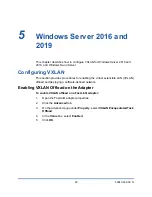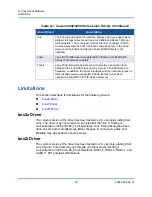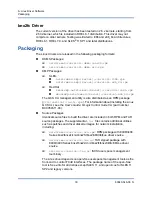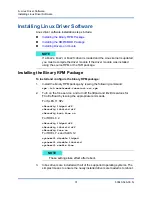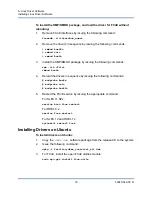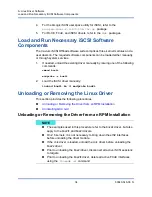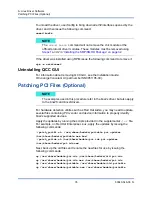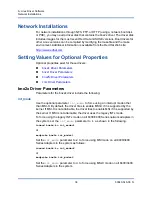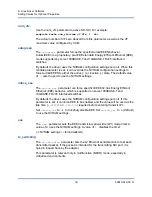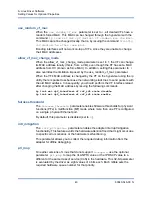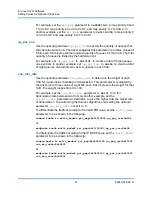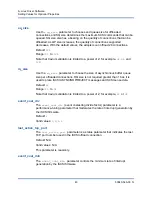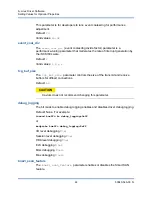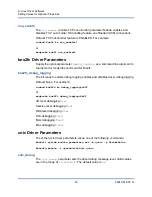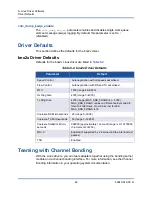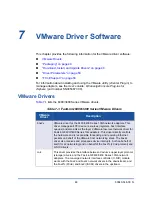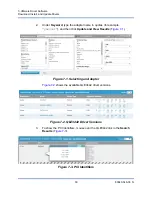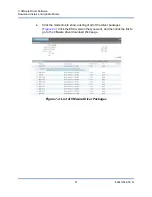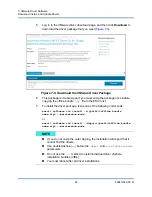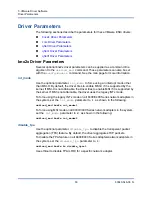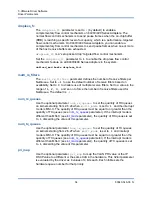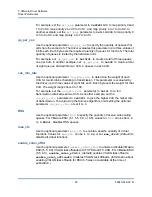
6–Linux Driver Software
Setting Values for Optional Properties
40
83840-546-00 N
use_random_vf_mac
When the
use_random_vf_mac
parameter is set to
1
, all created VFs have a
random forced MAC. This MAC can be changed through the hypervisor with the
command
ip link set dev <pf device> vf <index> mac <hw mac>
.
This MAC cannot be changed locally, that is, by issuing the command
ifconfig
<vf device> hw ether <new mac>
.
Bonding interfaces will not work on-top of VFs, since they are unable to change
their MAC addresses.
allow_vf_mac_change_mode
When the allow_vf_mac_change_mode parameter is set to 1, the VF can change
its MAC address locally (this is, from a VM), even though the PF has set a MAC
address from HV (known as force MAC). In addition, setting this parameter to
1
also overrides the limitation imposed by the use_random_vf_mac parameter.
When the VF's MAC address is changed by the PF on the hypervisor using the ip
utility, there is packet loss because the networking stack tries to send packets with
the old MAC address. Consequently, you should perform the VF interface reload
after changing the MAC address by issuing the following commands.
ip link set <pf_interface> vf <vf_id> state disable
ip link set <pf_interface> vf <vf_id> state enable
fairness threshold
The
fairness_threshold
parameter enables firmware thresholds for physical
functions (PFs) in multifunction (MF) mode where more than one PF is configured
on a single, physical Ethernet port.
By default, this parameter is disabled (set to
0
).
intr_mitigation
The
intr_mitigation
parameter enables the adapter interrupt mitigation
functionality. This feature avoids the hardware attention flood that might occur due
to specific error scenarios or the hardware malfunctioning.
This parameter allows you to collect the required debug information from the
adapter for offline debugging.
pri_map
On earlier versions of Linux that do not support
tc-mqprio
, use the optional
parameter
pri_map
to map the VLAN PRI value or the IP DSCP value to a
different or the same class of service (CoS) in the hardware. This 32-bit parameter
is evaluated by the driver as eight values of 4 bits each. Each nibble sets the
required hardware queue number for that priority.

